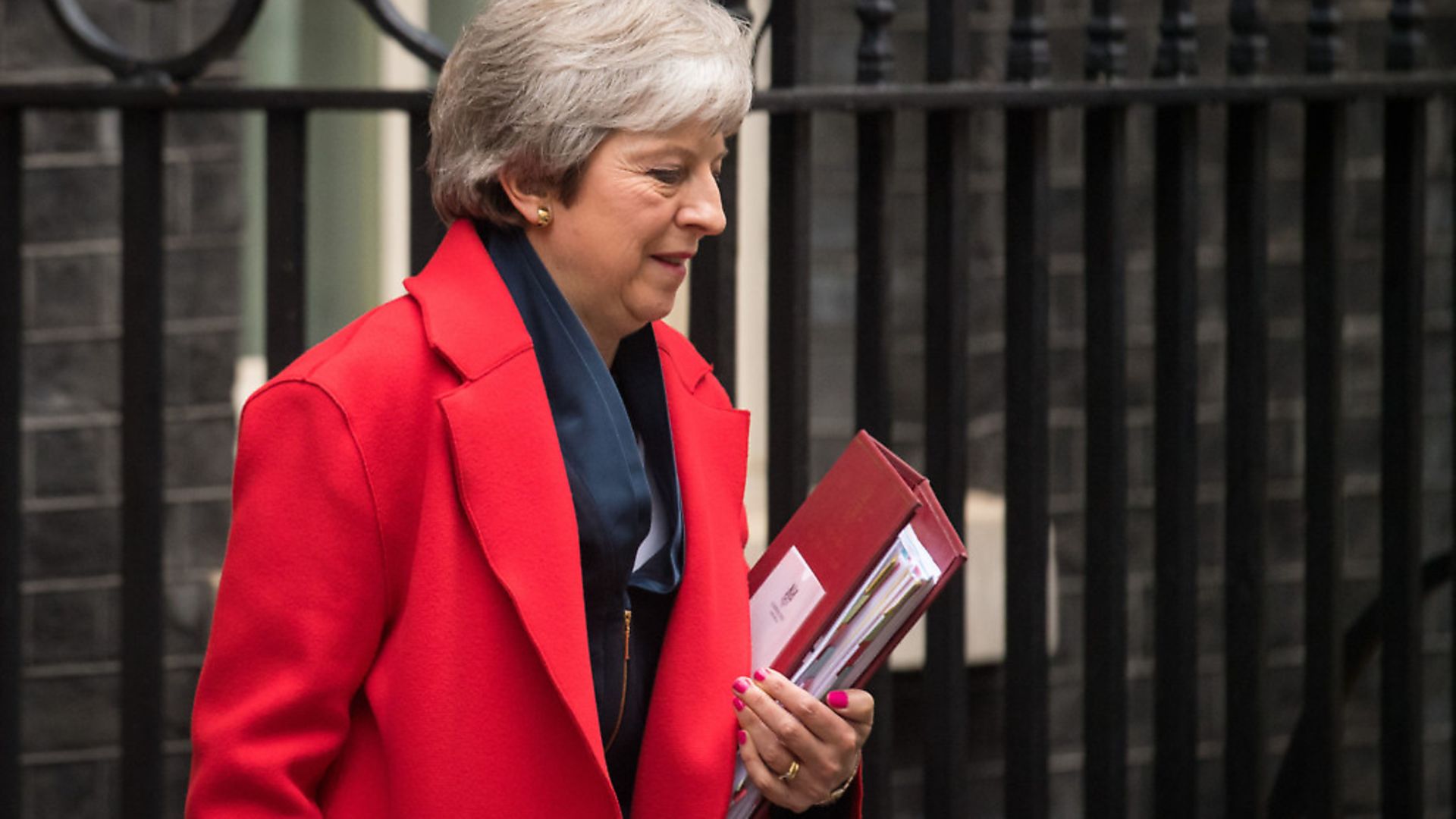
With her leverage curtailed, the PM has upped the stakes to a dangerous level, writes JAMES BALL.
When the ‘eurosceptic’ Conservative MP John Hayes was given a knighthood last week, his colleagues in parliament seemed less than delighted at his good fortune.
Much of the reason for the discontent appears to be the suddenness of Hayes’ elevation – usually honours are only bestowed to mark the Queen’s birthday and at the New Year. The curious timing of Hayes’ knighthood led the more suspicious among his Conservative brethren to believe he had been bought off to support May’s deal.
‘I should mention in passing, and just between us,’ leading Brexiteer MP Mark Francois noted in a scathingly sarcastic letter to Hayes – which immediately leaked to the press – ‘that some colleagues are unkindly suggesting that this award is a sign, for those who understand these things, of absolute desperation by a government which has effectively abandoned Brexit and now clearly lost the support of the DUP and many of its own backbenchers, to the extent that it is now reduced to handing out knighthoods to malleable colleagues.’
Either Francois’ cynicism was in error, or No.10 made a mistake in dishing out a knighthood before the vote, but either way if Theresa May hoped Hayes would be grateful for his elevation, she hoped in vain: Hayes had said he will vote against the deal.
Suspicions around Hayes’ knighthood are just the tip of a mountain of speculation and rumours about the trades and transactions May is offering, in a bid to pass a deal which few informed commentators believe can pass – certainly not on its first time through parliament. More than 90 Conservative backbenchers have publicly said they will not vote for the Withdrawal Agreement, while Jeremy Corbyn’s rhetoric on how terrible the deal on offer is leaves him little wriggle room to change Labour’s policy to support it, or even to abstain – if he were ever going to be tempted to do so.
This leaves May in a ferociously difficult position, as most of the tactics to pressure or persuade MPs to vote for something they don’t wish to rely on the power of patronage that the prime minister wields.
She can offer MPs knighthoods, or peerages on retirement, or even a place on the privy council. She can promise ministerial jobs in a post-deal reshuffle. As leader of the Conservative party – rather than as PM – she can suggest whether or not an MP in a marginal constituency will be seen as a priority for funding and high-profile visits or not, which can often spell the difference between victory and defeat.
All of these powers rely on May’s position being seen as secure, and on there being sufficiently few potential rebels – there are only so many things you can offer all at once before the system collapses. May has neither of those advantages.
May’s alternative option was to try to corral enough Labour MPs to rebel against their frontbench and either abstain, or better, vote in favour of her deal as an alternative to a disastrous no-deal Brexit. These efforts appear to be dead on arrival, as May made no effort to involve such Labour MPs until the deal was done – leaving them to suddenly be invited to accept something they were given no role in building. It is an offer that has clearly not appealed to many of them – especially as most think even if they did rebel (which they might consider), the vote would still be heavily lost and their career would be ruined for nothing.
That leaves Theresa May – an often pedestrian politician who gets her way through sheer grind – out of all conventional offers. Trying to pass this deal will require her do something very out of the ordinary.
The most commonly-accepted idea May will try is offering the same deal to parliament again, after the EU confirms it would not reopen or reconsider it. This would rely either on substantial political panic at no-deal, or a crash in the markets.
However, as few people expect May’s deal to pass, neither ‘shock’ seems too likely – and politically it would be difficult for Labour to suddenly abstain on a deal it had previously attacked so savagely.
One way to break the current deadlock – or at least break each side’s sense of complacency – would be to find a means to offer up each publicly-discussed alternative before voting on May’s deal. This might prove possible to do as amendments to the deal.
If May could demonstrate there was no parliamentary majority for an early general election, or extending Article 50, or revoking it, or holding a second referendum, she may start to get the panic she would need to get through a deal.
But that would require a huge amount of political nerve, and would also require convincing parliament that it is meaningless to vote to reject no-deal: parliament can vote to reject no-deal as many times as it likes, but without some form of positive action to avert it, it will happen anyway.
May’s final roll of the dice could easily end up as an early general election intended as a quasi-referendum on her deal – in the hope it would force Labour to clarify its position and set up a last-ditch vote to get her plan through. Even this could be blocked: Conservative MPs could easily decide they’d rather have an early change of leader than an early election.
This, then, is the deadlock: May does still have her traditional tools of persuasion, but they are blunted – and all the unconventional ones come with the highest of political stakes. Theresa May is playing Russian roulette on a national scale – and there’s no telling how that will end.










